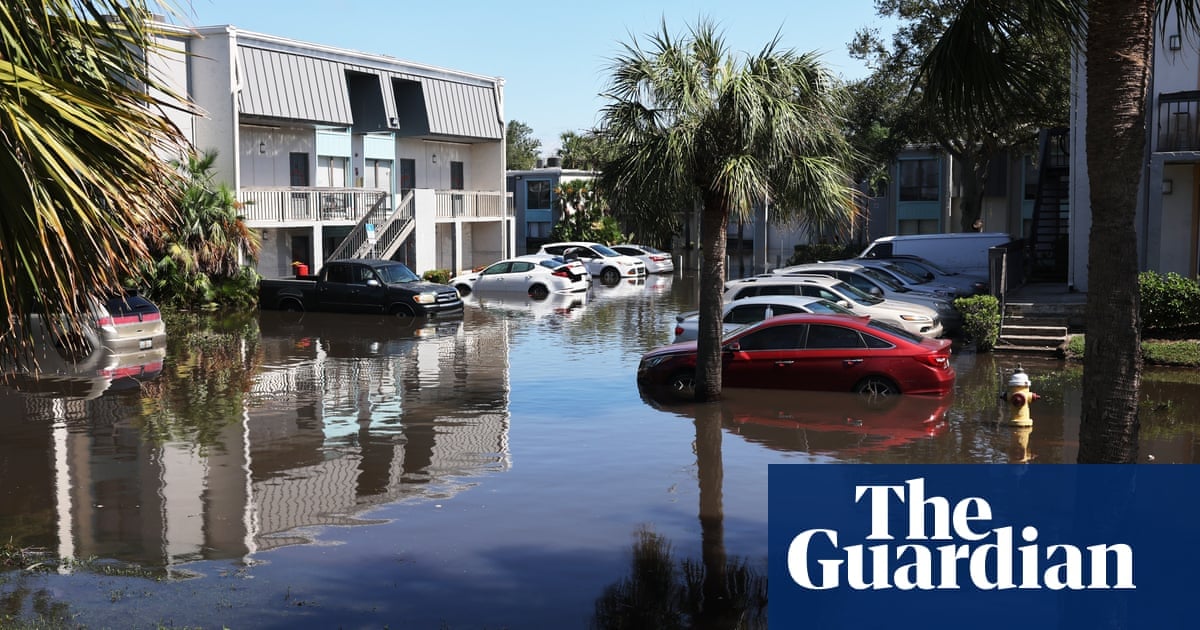Flooding is separate from typical US home insurance and many homeowners are not adequately covered
As millions of US residents begin working to file insurance claims on their homes in the aftermath of Hurricanes Helene and Milton, many could be denied, particularly if their homes were damaged by flooding.
A quirk in the US home insurance market is that flood insurance is separate from typical home insurance, which usually covers wind damage from hurricanes but not flooding. Homeowners must purchase flood insurance separately if they want their homes protected against flooding.
And many don’t. In some areas where Hurricane Helene hit the hardest, less than 1% of homes had flood insurance when the storm hit. In Buncombe county in North Carolina, home to Asheville, only 0.9% of homes had flood insurance, according to data from the Insurance Information Institute.
The number of people with flood insurance in Florida, which was hit by Hurricane Milton two weeks after parts of the state were battered by Helene, is higher than in other parts of the country. But still, the take-up is low. In Sarasota county, which took a direct hit from Milton, just 23% of residents have flood insurance.



Insurance was always a last case resort and not submitting claims because of a paint chip. Now that climate change is showing its face and you built along a beach which everyone has warned you about and needs constant replenishing. Sorry if I am having a little trouble finding some empathy here.
Note that a lot of the people that are in trouble this time are hundreds of miles inland in mountains… .
Climate change affects the entire planet. I was simply pointing the most obvious example. What happened in west NC is tragic but this is the new reality we face and the entire south and eastern coast line requires a rethink of how we insure and more importantly how we build in the future.